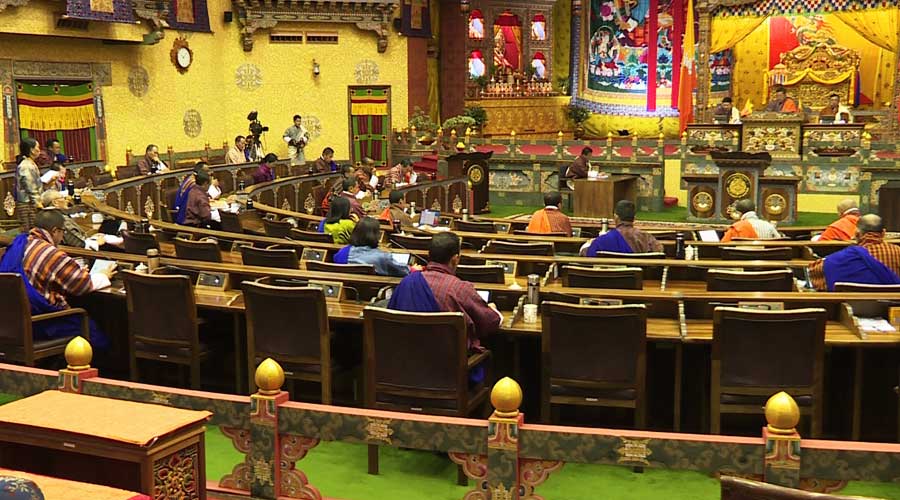
Farm roads are the lifeline for most rural communities across the country. It is crucial in reaching farm produce to markets and the nearest national highways. But this basic infrastructure is a far-fetched dream in some parts of the country. The gewog administrations are challenged with acquiring consent or approvals from concerned landowners to construct roads through their private land. Raising farmers’ concerns, Khamdang-Ramjar’s member of parliament, during the National Assembly’s Question Hour session on Friday asked if the government could intervene and frame policies in a manner that can resolve the issue.
“We should respect and understand if the land is used for cultivation. But there are cases where landowners refuse to give consent or approval even if their land is left fallow for years. This has affected gewog administrations to construct farm roads in the communities even with approved budgets. So, gewog administrations expect the government to intervene by framing policy to ease the problem,” said Karma Gyeltshen, Khamdang-Ramjar MP.
As is the case elsewhere in the country, the Gosarling Gewog administration in Tsirang couldn’t construct an approach road to Gosarling Primary School last year after a few landowners didn’t allow the construction of a farm road through their land. The gewog administration had to stop the work before completion.
Similarly, six families in Drubchhugang chiwog of Tsholingkhar Gewog in the district are left without a farm road even today. The gewog administration couldn’t construct a farm road for them after three individuals refused to spare a few decimals of land.
Responding to the question, the Agriculture Minister said, the ministry does not have the authority to involve in getting consent from the community. The Minister said community clearance is required as per the National Environment Commission’s Environment Protection Act 2007 and other rules and regulations of the commission.
“Respective local government leaders and Dzongkhag Tshogdu has the authority to resolve the issue if few landowners have objections against farm road constructions in the communities. The two parties should mutually discuss and look for land substitutes or negotiate for compensation. The ministry’s mandate is to provide necessary support and guidelines for farm road constructions based on priority,” said Agriculture Minister, Yeshey Penjor.
Without any policy interventions in sight, for now, the only solution for the communities seem to be negotiating on land substitute and providing monetary compensation to land owners.
Pema Tshewang, Tsirang
Edited by Phub Gyem







